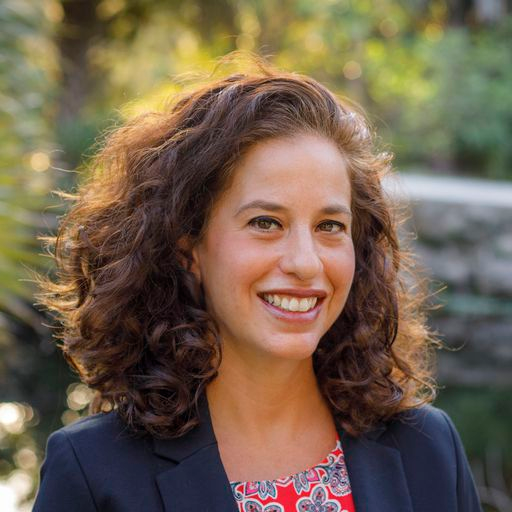Like many conservative politicians, Texas Gov. Greg Abbott positions himself as a champion of religious liberty. His website notes that he “successfully defended the constitutionality of the Ten Commandments on the Texas Capitol grounds all the way to the U.S. Supreme Court” and that he also “represented all 50 states in defending the words ‘One Nation, Under God’ in our Pledge of Allegiance.”
In the early days of the COVID-19 pandemic, Abbott, who previously served as Texas’ attorney general, appeared to double down on his faith-friendly reputation.
He deemed houses of worship to be essential services in Texas, enabling them to sidestep stay-at-home orders. He also exempted religious gatherings from a statewide mask mandate put in place last summer.
But now, as the delta variant wreaks havoc on American communities and pandemic-related restrictions grow even more contentious, Abbott’s recent effort to limit the movement of untested immigrants has pitted him against faith groups in an unusual religious freedom battle that’s part of a federal government lawsuit against Texas.
Catholic charities at work along the U.S.-Mexico border claim the governor’s July 28 executive order restricting transport of immigrants by nongovernmental agencies interferes with their ability to live out their faith.
“We want to stop the spread of COVID-19 as much as the state does,” said Bishop Daniel E. Flores, who leads the diocese of Brownsville, Texas, in an Aug. 13 press release. “But for that to happen, we need the government to let us do what Christ called us to do: minister to the strangers among us in their time of distress.”
Abbott’s office did not immediately answer questions submitted by the Deseret News via email about the ongoing legal dispute. The governor’s previous comments on the executive order focused on the infection risk allegedly posed by immigrants, not the work of religious organizations.
“The dramatic rise in unlawful border crossings has also led to a dramatic rise in COVID-19 cases among unlawful migrants who have made their way into our state, and we must do more to protect Texans from this virus and reduce the burden on our communities,” Abbott said in a statement announcing the challenged policy. “This executive order will reduce the risk of COVID-19 exposure in our communities.”
Policy plan in flux
Even before Catholic groups raised their religious liberty claims in a legal brief, the future of Abbott’s executive order was unclear.
Just two days after it was issued, the U.S. Justice Department filed a lawsuit aimed at blocking the order from taking effect. Officials said the Texas policy violates the Constitution’s supremacy clause by undermining federal immigration law and that it also puts people’s lives at risk by interfering with existing COVID-19 procedures.
“Among other harms, the order would exacerbate and prolong overcrowding at facilities and shelters and obstruct the federal government’s arrangements with state, local and non-governmental partners to ensure that released individuals are transported for appropriate COVID-19 testing to address public health concerns,” said U.S. Attorney General Merrick Garland in a July 29 letter to Abbott.
A federal district court approved the Justice Department’s request for a temporary restraining order blocking enforcement of Abbott’s policy on Aug. 3. Ten days later, the restraining order was extended through this week.
On Thursday, the court granted the federal government’s request for a longer-term ban on the order’s enforcement. The newly issued preliminary injunction will be in place until the ongoing case is resolved.
Faith groups are among the organizations that filed briefs in support of the Justice Department’s position. In its filing, Catholic Charities of the Rio Grande Valley, a ministry of Bishop Flores’ diocese, argued that Abbott’s executive order would have a “severe negative effect” on its “ability to carry out its religious mission” and therefore violate the First Amendment’s free exercise clause.
“The order will prevent Catholic Charities from doing its religious work,” the amicus, or friend of the court, brief said.
That work includes operating a respite center in McAllen, Texas, which serves immigrants after they’ve been processed and released by U.S. Border Patrol. At the center, Catholic Charities provides access to medical care, showers, food, clean clothes and other resources to around 1,000 people each day, and, for the past several months, it’s also been offering COVID-19 tests.
The respite center’s leaders, including Sister Norma Pimentel, a prominent immigrants’ rights activist, believe Abbott’s executive order would actually make the pandemic worse by limiting their ability to move immigrants with COVID-19 to quarantine sites.
“This order solves nothing and wrongfully endangers Catholic Charities’ religious mission to care for migrants,” said Eric Rassbach, vice president and senior counsel at the Becket Fund for Religious Liberty, the law firm representing Catholic Charities, in a statement.
Religious freedom at the border
Although the ongoing lawsuit over Abbott’s order is unique, the situation is not the first time in which policymakers who advocate for strong religious freedom protections in other contexts seemed to overlook or dismiss the religious significance of a faith group’s immigration-related work.
In 2019, the Trump administration squared off in court against religiously affiliated activists who left water, food and blankets near the border for immigrants to find. Attorneys for the Justice Department dismissed the activists’ religious freedom claims, arguing that the men and women’s real goal was to interfere with immigration policy.
The Trump administration also challenged a Catholic diocese’s right to hold onto land along the U.S.-Mexico border. The government’s border wall plan called for a small chapel managed by the church to be torn down.
One of Catholic Charities’ goals in the current case is to help the government understand the link between the organization’s work and Catholic teachings. People like Sister Pimentel are motivated by their faith, not by politics, said Nick Reaves, a Becket attorney.
“Her role is not to influence immigration policy. It’s to help the people in front of her. And that’s the way her religious liberty is being burdened by the governor’s order,” he said.


 alt=Mya Jaradat
alt=Mya Jaradat alt=Kelsey Dallas
alt=Kelsey Dallas